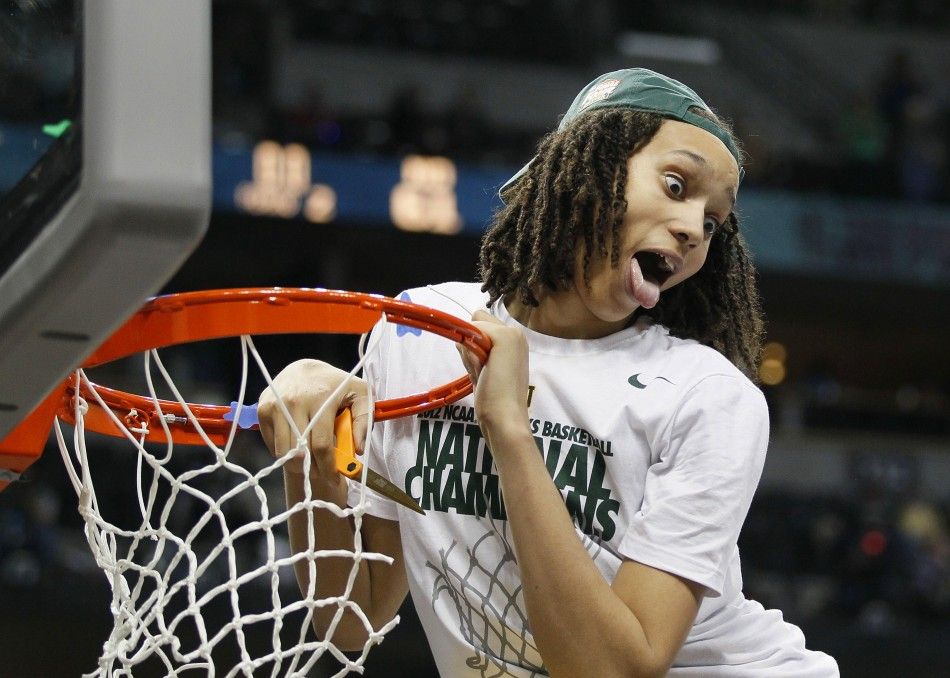In the world of sports, identity can be a complex issue, especially when it comes to gender and representation. The phrase "Griner is a guy" has stirred conversations, debates, and even controversies regarding the identity of a prominent athlete, Brittney Griner. This article explores the multifaceted aspects of Griner's life, her career, and the societal perceptions that fuel such claims. As a standout player in the Women's National Basketball Association (WNBA), Brittney Griner has not only made headlines with her exceptional skills on the court but has also become a symbol of various social movements, including LGBTQ+ rights and gender equality in sports. However, the narrative surrounding her identity has often been clouded by misconceptions and stereotypes.
Understanding the sentiment behind the statement "Griner is a guy" requires delving into the cultural context and the biases that exist in sports and society. Griner's journey as an athlete and an individual challenges the traditional norms of femininity, leading some to misunderstand her identity. This article aims to clarify these misunderstandings while celebrating Griner's achievements and the impact she has made both on and off the court.
As we navigate through the details of Griner's life, we will address various questions surrounding her identity, career, and the societal perceptions that have shaped her public image. Ultimately, the goal is to foster a more inclusive dialogue that respects and acknowledges the complexities of identity in the world of sports.
Who is Brittney Griner? A Brief Biography
Brittney Griner is a professional basketball player known for her remarkable height, impressive skills, and strong presence on the court. Born on October 18, 1990, in Houston, Texas, she quickly rose to prominence as a basketball prodigy during her high school years. Griner went on to play college basketball at Baylor University, where she made history by leading her team to an NCAA championship in 2012 and earning numerous accolades along the way.
Personal Details and Bio Data
| Detail | Information |
|---|---|
| Name | Brittney Griner |
| Date of Birth | October 18, 1990 |
| Height | 6 feet 9 inches |
| Position | Center |
| College | Baylor University |
| WNBA Draft | 2013 |
| Current Team | Phoenix Mercury |
What Contributions Has Griner Made to Basketball?
Brittney Griner's contributions to the sport of basketball are monumental. She is not just a player; she is a trailblazer who has challenged the norms of women's sports. With her incredible shot-blocking ability and scoring prowess, Griner has redefined the expectations from female athletes. Here are some of her notable contributions:
- NCAA Champion: Leading Baylor to a championship victory in 2012.
- WNBA Achievements: Multiple-time WNBA All-Star and All-WNBA Team member.
- Olympic Gold Medals: Representing Team USA in international competitions.
- Activism: Advocating for LGBTQ+ rights and speaking out against social injustices.
Why Do Some People Say "Griner is a Guy"?
The phrase "Griner is a guy" stems from a mix of societal stereotypes and misconceptions about gender identity in sports. Griner, who is openly gay and has a masculine appearance, often faces scrutiny and misunderstanding from those who may not be familiar with the nuances of gender expression. Such statements reflect a broader issue of how society perceives athletes, particularly women who break traditional molds.
- Is Brittney Griner A Real Man Unpacking The Controversy
- Unraveling The Mystery Who Is Joely Richardson Married To
How Does Gender Identity Affect Athletes Like Griner?
Gender identity plays a crucial role in how athletes are perceived and treated in society. For male athletes, traditional masculinity is often celebrated, whereas female athletes like Brittney Griner can sometimes be subjected to ridicule or dismissal based on their appearance or lifestyle choices. This dichotomy raises important questions about the expectations we place on athletes and how those expectations can lead to harmful stereotypes.
What Is the Impact of Misunderstandings on Griner's Career?
Misunderstandings regarding Griner's identity have had both positive and negative impacts on her career. On one hand, she has become a prominent figure in advocating for LGBTQ+ rights and challenging gender norms in sports. On the other hand, the scrutiny and misconceptions can be emotionally taxing and may detract from her achievements as an athlete. Griner's resilience in facing these challenges showcases her strength and determination to excel in her field.
How Can Society Move Forward in Understanding Gender Identity in Sports?
To foster a more inclusive environment in sports, society must engage in open dialogues about gender identity and expression. Here are some steps that can be taken:
- Education: Increasing awareness about gender identity and the spectrum of gender expression.
- Support: Providing platforms for athletes to share their experiences and challenges.
- Representation: Ensuring diverse voices are heard in the conversation about sports and gender.
- Celebration: Recognizing and celebrating the achievements of all athletes, regardless of gender identity.
Conclusion: Embracing Diversity in Sports
In conclusion, the statement "Griner is a guy" is a reflection of ongoing misunderstandings regarding gender identity in sports. Brittney Griner's journey highlights the importance of embracing diversity and challenging stereotypes. As society continues to evolve, it is essential to create an environment that respects and celebrates individual identities, allowing athletes like Griner to thrive without the weight of misconceptions. By fostering understanding and inclusivity, we can pave the way for future generations of athletes to shine in their own unique ways.
- Britney Griners Journey To Recovery Understanding Her Surgery
- Unraveling The Mystery Who Is Joely Richardson Married To


